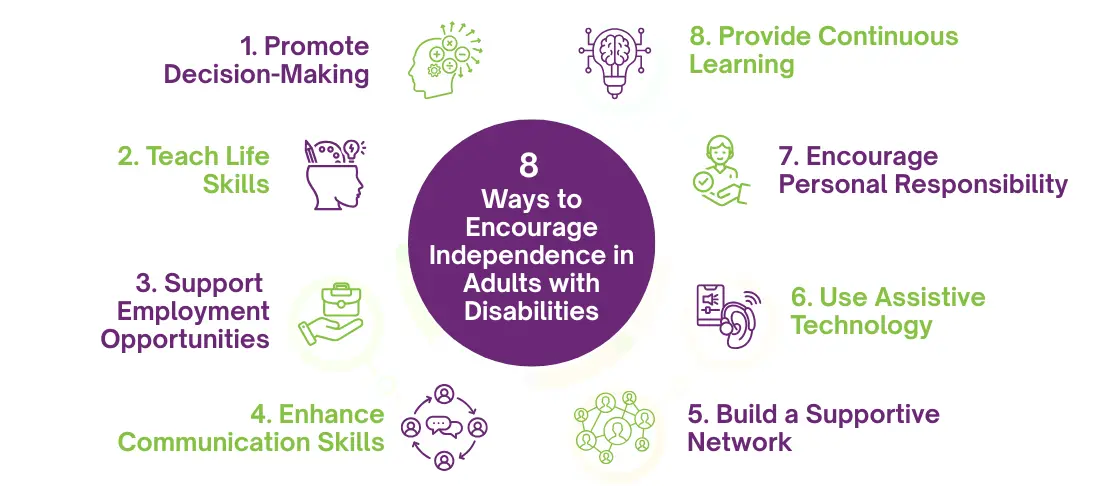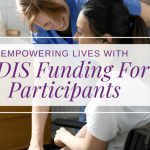
How to Encourage Independence in Adults with Disabilities
Achieving great things in life requires a chance to make independent choices. This is what NDIS helps its participants. But we must know that it means different to me, you, or anyone else. When an adult NDIS participant follows the plan, they should understand it. A realisation of how Independence in NDIS Adults participants, is so much more than just following a plan.
Instil Independence in NDIS Adult Participants
Like we mentioned earlier independence means different things to different people. For some, it might be living on their own, while for others, it could mean being able to travel independently or manage their money alone, right?
Encouraging independence in NDIS adults participants involves helping them gain the skills and confidence they need to achieve their personal goals.
Ways to Encourage Independence in Adults with Disabilities

Making Goals and Working towards them
The first step in encouraging independence is to identify and set realistic goals, do not think you can run a 100 m sprint right from today, but maybe work to run a marathon.
Service providers can sit down with NDIS participants to understand what independence means to them. This could involve discussions about their interests, strengths, and areas where they feel they need more support. What goals can we list down?
Examples of Independence Goals
- Daily Living Skills: Learning to cook, clean, and manage personal hygiene.
- Employment: Finding and keeping a job.
- Social Participation: Engaging in community activities and building relationships.
- Travel: Learning to use public transport independently.
Create a Supportive Environment
Money and everything nice can still do nothing if the people and place is not supportive. A supportive environment is very important for making the NDIS Adult participant independent. Independence in NDIS adult participants involves both the physical environment and the social support network.
Ensure their living space is safe and accessible. Adaptations like grab rails, ramps, or accessible kitchen equipment can make a big difference. Some tips are mentioned below.
Tips for a Supportive Environment
- Accessible Home: Make necessary changes to their living space.
- Support Network: Encourage family, friends, and support workers to make them understand independence.
- Technology: Use assistive technology to help with tasks like cooking, cleaning, or communication.
Skill Development
Skill development is a key part of encouraging independence in NDIS adult participants. This can involve formal training or informal learning experiences. Focus on building skills that are directly related to their independence goals.
Key Areas for Skill Development
- Daily Living Skills: Teach participants how to cook simple meals, do laundry, and manage their personal care.
- Financial Management: Help them learn to budget, pay bills, and save money.
- Social Skills: Encourage them to join clubs, attend community events, and build friendships.
- Employment Skills: Provide training on job search techniques, and so much more
Encourage Community Involvement
Community involvement is a vital aspect of independence. Encourage NDIS adult participants to join local clubs, volunteer, or participate in community events. Being active in the community helps build social networks and provides a sense of belonging and purpose.
Conclusion
Encouraging independence in NDIS adult participants is a rewarding process that involves setting goals, creating a supportive environment, developing skills, and fostering self-confidence. By utilising NDIS support and encouraging community involvement, you can help participants achieve greater independence and improve their quality of life. Remember, every step towards independence is a success worth celebrating.



